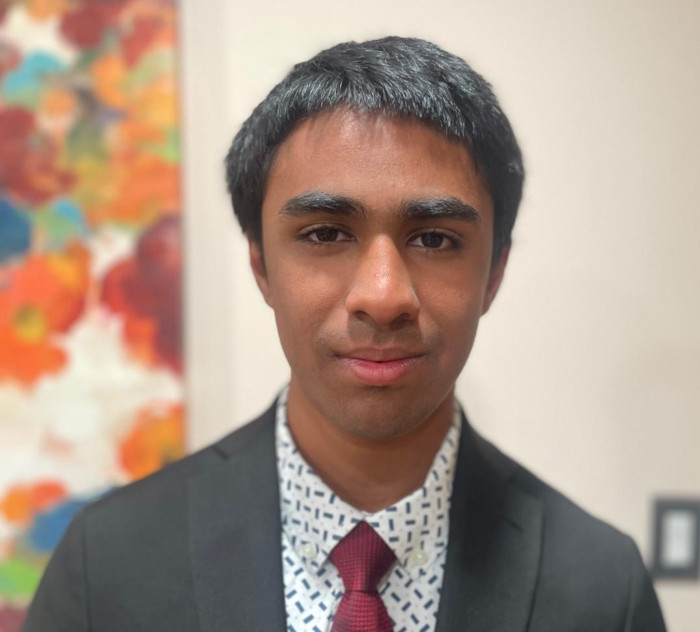|
|
|
Om Bhaskar is a junior attending South Brunswick High School. He is a Debate Captain for his school's Debate Club, Secretary for Model UN, the Vice President for the History Club, and an Editor for the school newspaper. |
By Om Bhaskar
The state has messed a lot of things up. From overcharging hardworking New Jerseyans through horrifyingly high taxes to restricting their freedom to defend themselves with firearms, government-run institutions have proven themselves again and again to be either incompetent, dangerous, or both. Public high schools are no different.
In freshman year, I took a Government class in my high school, South Brunswick High School. The institution is highly ranked, being ranked #60 out of 406 high schools in New Jersey by U.S. News.
Now, it is important to note that most civically engaged high school students in my area are either progressive Democrats or socially conservative Republicans (the former is far more common than the latter). You would be hard-pressed to find a future history, political science, or pre-law major that even knows much about the Libertarian Party, let alone other third parties. Now, from my experiences in public school, there could be a reason for why this is. Simply put, schools seem to subtly push students into believing we only have two choices for governance.
In the Government class I took in school, we were shown two scales in order to determine where someone stood on the political spectrum: an economic one and a social one. Essentially, we were taught conservatives believe in more economic freedom and less social freedom. The opposite was said for liberals. However, there are many issues with these definitions, which have become increasingly outdated because of Donald Trump’s chokehold on the Republican Party.
It should be noted that more freedom is not necessarily presented as a good thing in public schools, whether it be about social or economic freedom. This mainly connects to the political biases of the teacher. My Government teacher was slightly biased toward conservatives, while the other Government teacher in my school was biased toward liberals. Either way, the true story about the two-party system, as well as what people actually believe, was always going to be bastardized.
Generally, Libertarians were always labeled and described as “extremists,” a third party that was full of nut-jobs that had no chance of victory in any election. Generally, their ideas were not paid attention to, and the different factions or belief systems of the Libertarian Party were never accounted for. The Dallas Accord? Never happened. Reasons for rejecting the social contract? Those aren’t even taught in much detail. In fact, Locke’s social contract is taught multiple times through middle and high school, almost always without any kind of counterarguments toward it. The issue of not acknowledging different factions in political parties actually existed for almost all political parties that were discussed, even the Republicans and Democrats.
The facts that were never brought to light about third parties in my public school have created numerous misconceptions and ignorant statements about them. When talking to people that took the same government courses as myself, they were far more confident in their knowledge of the Republican and Democrat parties than any third parties. Even speaking to people outside my school bears similar results, with a lot of students being confused when I bring up parties outside of the main two in conversation.
This kind of teaching funnels students into blindly following the two-party system, and as we all know, the duopoly in government will try everything to keep itself in power. The state’s willingness to misrepresent, or even straight up ignore, basic principles of not just Libertarians, but most third parties through public education shows how misleading public civic education can be.
The state’s inadequate civic education has also contributed to the general acceptance almost everyone I talk to has for choosing the “lesser of two evils” during every election. There is almost zero knowledge or support for things like ranked-choice voting in high schools, and any idea of reforming our pathetic excuse for a voting system is sidelined by the tiny political discourse that is only deemed socially acceptable every four years during presidential elections.
It is clear that the state’s control over the civic education system for most students is designed to keep the same people in power. While it is important to learn about the Founding Fathers, how our voting system works, and the history of our nation, it is the passive indoctrination of the youth of America that has allowed the continued duopoly to exist, despite the fact that almost every facet of Americans’ lives has deteriorated under their control.
In order to promote the future of liberty in New Jersey, civic education must be reformed significantly. There’s a reason most high school students, and in turn most adults, turn to one of the two major political parties. It is not a natural occurrence, but largely because of the public school system’s inability to accurately and fairly represent each political party.

